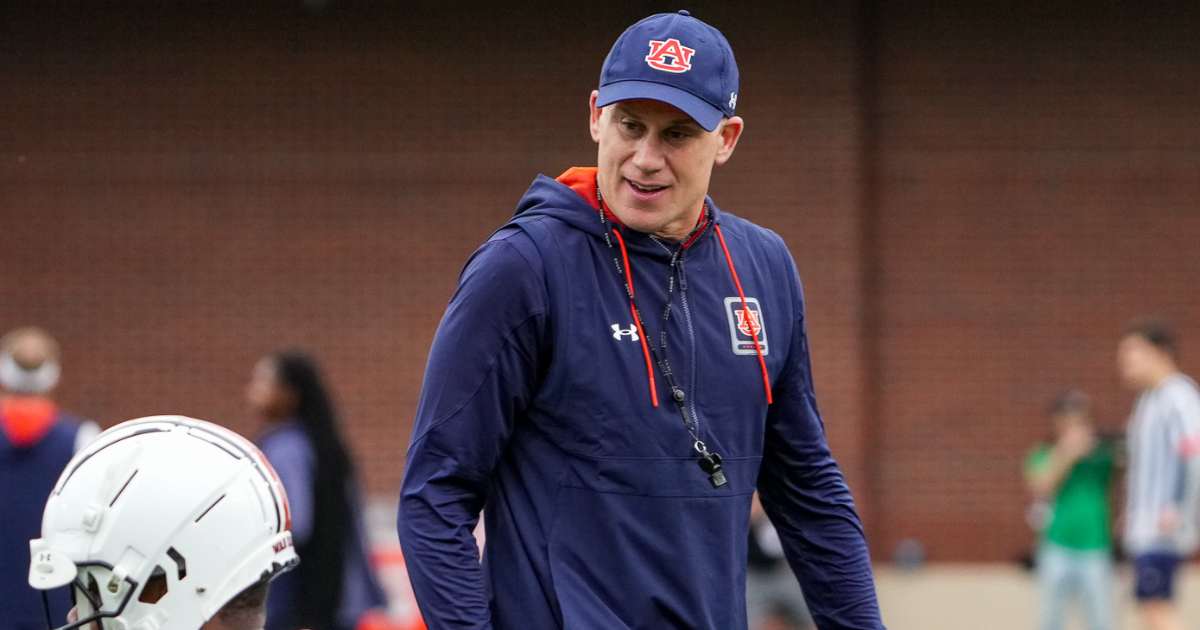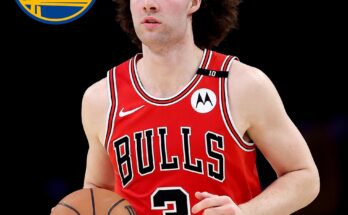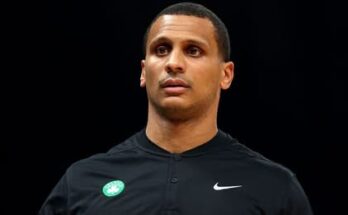DJ Durkin’s Defense Ignites Auburn’s Transformation, Leaving Opposing Offenses in the Dust Under Hugh Freeze’s Vision
In the brutal landscape of Southeastern Conference football, dominance isn’t promised—it’s earned in the trenches, on third down, and across months of punishing preparation. At Auburn University, that long-promised transformation has begun to materialize, and it’s happening on the side of the ball where head coach Hugh Freeze placed his biggest bet. That gamble’s name? DJ Durkin. And so far, he’s delivering on it with a vengeance.
Durkin, hired in early 2024 to overhaul a porous Auburn defense, has ignited a resurgence. His unit isn’t just improving—it’s embarrassing opposing offenses and setting a new tone in a program desperate for a return to relevance. During Auburn’s most recent scrimmages and fall camp showings in 2025, Durkin’s defense has not only outplayed the Tigers’ own offense, it has flat-out dominated it, swarming ball carriers, confusing quarterbacks, and forcing mistake after mistake.
This is no coincidence. This is Hugh Freeze’s blueprint in action.
Freeze, a known offensive architect, has built his coaching identity around explosive, high-tempo offenses. Yet when he took the reins at Auburn, he made clear his vision required more than outscoring opponents—it demanded physicality, consistency, and dominance on defense. Freeze knew the SEC wasn’t forgiving. Fielding a competitive team starts with defense. That’s why he went after DJ Durkin, a proven defensive mind with a reputation for aggressive schemes, high motor players, and relentless front-seven pressure.
Durkin brought with him a résumé that included successful tenures at Texas A&M, Florida, and Michigan. He had developed elite defenses, cultivated NFL talent, and produced schemes built on pressure and disruption. And when he landed on The Plains, he wasted no time implementing his brand of football.
The early returns in 2024 spoke volumes. Auburn’s defense improved dramatically across nearly every statistical category. The unit held opponents to under 20 points per game—a dramatic turnaround from the prior season—and limited rushing attacks to under 120 yards per contest, their best effort in over a decade. Despite Auburn’s 5-7 finish, many in the SEC took notice: Auburn’s defense, under Durkin, was no longer a soft spot. It was a problem.
Players responded to Durkin’s approach. Veterans embraced the structure and speed of the system. Young players absorbed the daily walkthroughs and demanded excellence from each other. The defense became a hive of accountability, where execution and communication were paramount. Durkin emphasized pre-snap alignment, disguised coverages, and calculated blitz packages that forced offenses into chaos.
By the time the 2025 offseason arrived, the signs of transformation were everywhere. Auburn had returned key playmakers on the defensive line, including 6-foot-6 edge terror Keldric Faulk, who now anchors one of the most feared fronts in the SEC. Alongside him, a mix of transfers and breakout sophomores form a deep, aggressive unit that’s difficult to block and even harder to predict.
Behind them, the linebacking corps has tightened gaps and quickened pursuit angles, while the secondary—once vulnerable—has become a ball-hawking group led by physical corners and instinctive safeties. They fly to the ball. They hit hard. They bait quarterbacks into mistakes. In Durkin’s system, everyone has a role, and everyone has an edge.
But what has shocked many insiders is just how thoroughly this defense is dominating the very offense Hugh Freeze has spent months reshaping. During fall camp, the Auburn offense—now featuring promising young quarterback talent and new skill position weapons—has struggled mightily to find rhythm against Durkin’s troops. Every practice has become a battle. Every snap is contested. And more often than not, it’s the defense walking off the field victorious.
Freeze isn’t worried. In fact, he welcomes it.
He’s praised Durkin’s defense for its speed, violence, and ability to recover and adjust mid-play. Freeze has remarked that while offensive struggles in camp are never ideal, he would rather be challenged now than exposed later. He knows that facing this kind of defense every day is only going to sharpen his offensive players, reveal weaknesses, and accelerate growth.
Still, it’s impossible to ignore how lopsided some of the scrimmages have been. Quarterbacks have thrown into double coverage. Running backs have been hit three yards deep in the backfield. The pocket collapses within seconds. Receivers find no space against tight, pressing corners. From every level of the defense, the pressure is real and it’s relentless.
One Auburn insider who attended an early August scrimmage put it bluntly: “That defense is on fire. If this were a game, they’d have hung 10 sacks and three turnovers in the first half. They’re not just better—they’re playing angry. Like they’ve got something to prove.”
That attitude traces back to Durkin’s intense leadership style. He’s known for his direct coaching, his demand for accountability, and his obsession with preparation. Practices under Durkin are fast-paced and detail-heavy. Walkthroughs are frequent. Mistakes are corrected instantly. There is no gray area—players either execute or they don’t. And if they don’t, they hear about it.
But despite the demanding environment, players love it. Defensive backs have noted that Durkin’s approach has helped them understand their assignments in ways they never had before. Linemen rave about the freedom within the system to stunt and twist, to disguise and strike. Linebackers say communication has become second nature. What was once a unit full of uncertainty is now one built on cohesion and instinct.
The culture shift is undeniable. And it’s not just happening on the field.
Durkin has become a respected figure off the field as well—both for his experience and his recruiting chops. His arrival brought a bump in defensive recruiting almost immediately. In the 2025 cycle, Auburn has already secured several highly rated defensive prospects who cited Durkin’s track record and aggressive scheme as major selling points. Auburn is no longer just recruiting with tradition—it’s recruiting with purpose and proof.
And the university has taken notice. In February 2025, Durkin was rewarded with a multi-year extension that effectively doubled his salary, making him one of the highest-paid coordinators in the country. The message was clear: Auburn is betting on defense to carry the program forward, and Durkin is the man they trust to lead it.
Meanwhile, Freeze continues his battle with early-stage prostate cancer with the same grit he demands of his players. He’s remained active in camp, focused on leadership, and continues to shape the offense with the help of his staff. But having a trusted and proven defensive coordinator like Durkin has been critical during a time when Freeze’s energy is being stretched thin.
As the 2025 season looms, expectations for Auburn’s defense are sky-high. Some analysts believe the unit could be one of the top five in the SEC, capable of shutting down even the most explosive offenses in the conference. Others go further, projecting All-American nods for players like Faulk and breakout seasons for underclassmen in the secondary.
And if Auburn’s offense can find its footing—cutting down on turnovers, improving red-zone efficiency, and playing complementary football—then the Tigers could be more than just a tough out. They could be a contender.
But no matter what happens on offense, one thing is certain: DJ Durkin’s defense is ready. It’s fast. It’s fierce. And it’s sending a message to the rest of the SEC—Auburn is done being pushed around.
They’re back, and they’re bringing the pain.



